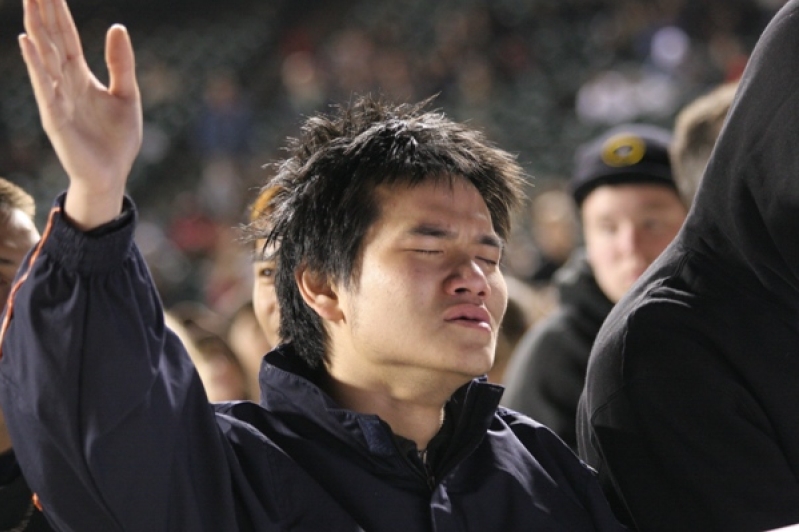
On many of the nation's elite university campuses, Asian American evangelicals have increasingly become exemplars of evangelical piety.
On many of the nation's elite university campuses, Asian American evangelicals have increasingly become exemplars of evangelical piety. They're fast dominating Christian campus groups and campus fellowship leaders say they're just touching the tip of the ethnic group.
Asian Americans make up 4.4 percent of the U.S. population. At Ivy League colleges like Yale, Harvard, and Columbia, they constitute more than 15 percent of student enrollment and over 40 percent at UC Berkeley, UCLA and UC Irvine, according to Rebecca Y. Kim, author of God's New Whiz Kids?.
And many of the Christian fellowships on campus that were predominantly white are now predominantly Asian American. There are 50 evangelical Christian groups at UC Berkeley and UCLA alone, and 80 percent of their members are Asian American, Kim wrote.
At UC Berkeley, InterVarsity (IV) Christian Fellowship – one of the nation's largest evangelical campus groups – began offering separate fellowships for different ethnic minority groups as membership became largely Asian American. IV's multiethnic fellowship has roughly 200 members, most of whom are East Asian.
On the East Coast, one out of four Evangelical college students at colleges and universities in New York City are Asian American and the once all white Campus Crusade for Christ at Yale is now 90 percent Asian, according to Kim.
"We're only touching the tip of the Asians," Collin Tomikawa, an InterVarsity official for the East Bay, told the San Francisco Chronicle. While Tomikawa told the local newspaper that the campus group has tried to diversify its staff, he noted that many evangelical groups have found they are continuing to attract a disproportionately Asian American membership.
To try to explain the phenomenon, Kim referred to a paper by Antony Alumkal of Iliff School of Theology titled “Race in American Evangelicalism: A Racial Formation Analysis," and stated that Asian Americans retreat into evangelical campus fellowships as an act of self preservation in a racially hostile setting.
Russell Jeung argues in Religions in Asian America: Building Faith Communities that contemporary evangelicalism gives Asian Americans a chance to escape the undesirable aspects of their racial status by adopting an alternative identity, by making Christianity the locus of their identity.
Ethnic and racial distinctions are thus transcended through a relationship with God, stated Kim.
"Why should I have to feel what I do represents my race?" posed Hatty Lee, 20, to the San Francisco Chronicle. "I am who God made me to be."
"I don't represent Korean Americans, I represent God," said the South Korea native.
Asian Americans often share common cultural traditions and values – what Paul Takunaga, national coordinator for IV's Asian American Ministries, calls "Asian DNA."
They are often described as more self-controlled, disciplined, fatalistic, obedient to authority, humble and collective relative to the European American population, Kim stated.
Tommy Dyo, former leader of the Asian American Christian Fellowship, told the local newspaper that Asian Americans are also more accustomed than other students to identifying with a group rather than seeing themselves foremost as individuals.
"A lot of what we are taught in general society is that it's very individual, that it's all you. But Asian Americans are attached to the greater whole," said Dyo, explaining why Asian Americans may be drawn to evangelical groups.
And campus ministries offer a refreshing change to the immigrant church, or the church of a second generation Asian American's parents, often viewed as patriarchal, hierarchical, dry and disconnected.
On campus, evangelical groups offer students contemporary worship songs, messages catered to their cultural and spiritual needs, and all the social benefits with frequent trips to the beach, retreats in the mountains and even study sessions.
"This is not just a place of worship; it is a place of community where you develop deep bonds with people," Kim quoted one IV staff member.







